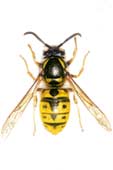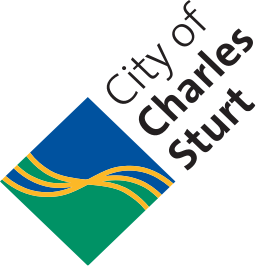Pests can be a nuisance. We're working to protect our environment and keep our homes safe and healthy.
Some plants and animals are declared pests under the Natural Resource Management Act 2004. We're working with the Mount Lofty Ranges Natural Resource Management Board and Primary Industries and Regions SA (PIRSA) to control invasive species in the City of Charles Sturt. For more information on pests, please visit PIRSA.
The following are not a declared risk and can be managed in the home.
Cockroaches carry bacteria that can cause disease. They move into homes where there is food, water and warm, dark places to hide.
To keep your home cockroach-free, reduce places for them to live, feed, breed.
Kitchen and food
- Always wipe kitchen and food preparation areas clean
- Store all food in containers with lids
- Don't leave dirty dishes out overnight
- Keep food and sticky drinks away from computers/keyboards
Rubbish
- Keep lids closed on rubbish bins
- Empty rubbish to the outside bin regularly
- Recycle newspapers, magazines and cardboard boxes
- Keep outdoor areas clean and free of rubbish
Water
- Fix dripping taps
- Remove other water sources
Hiding spots
- Check and clean surfaces underneath and behind appliances (toaster, microwave, fridge)
- Fill cracks and crevices that can provide shelter
Treating an infestation
Treatments are available from most supermarkets and hardware stores, and can include:
- surface sprays
- dusts
- baits and traps
- commercial pest control
For more information on any of the above pests, contact Environmental Health on 8408 1111.
 The European wasp is most easily identifiable by its:
The European wasp is most easily identifiable by its:
- black and yellow body
- yellow legs
- triangular markings on the abdomen
While the European wasp is the same size as the bee (10 - 15mm), it is less hairy and folds its wings back at rest.
Unlike the bee, a European wasp can sting multiple times. If left undisturbed the European wasp is not aggressive to humans or other animals.
Prevent European wasps being attracted to your property
- Do not leave fallen fruit or food scraps lying around your yard.
- Avoid leaving uneaten pet food or dog bones outside.
- Make sure rubbish bins have tight fitting lids.
- Keep compost covered at all times.
- Keep your swimming pool covered when not in use.
- Cover exposed food at picnics and barbeques.
- Don't drink out of cans or bottles - use clear containers or a straw.
To locate a European wasp nest:
- Establish the direction the wasps are flying by place a food source (ie meat or pet food) in a visible location.
- Once the wasp has collected the food, it will fly in a direct line to the nest.
- A wasp may be scavenging for food up to 500m from the nest.
- Keep relocating the food sources in the direction of the nest.
- You may need to work cooperatively with your neighbours.
Wasps usually establish nests where shelter is available. The most common location for nests is underground. Nests will be evident by a stream of wasps entering and leaving a hole in the ground.
Nests are also found in retaining walls, hollows of trees and wall cavities. The nest looks like grey paper mache type material. Nests constructed of mud are not European wasp nests.
If you have located a European wasp nest, call the City of Charles Sturt during business hours on 8408 1111. We'll make arrangements for destruction of the nest.
Mosquitoes can be annoying and leave you with itchy marks, especially during summer months. They also have the potential to spread nasty diseases.
The most effective way to control mosquito populations is to eliminate breeding sites. Mosquitoes like to breed in stagnant and undisturbed water bodies.
It is important to regularly empty the water in stagnant water bodies. This could be base of pot plants, bird baths and ponds. Mosquitoes do not breed in chlorinated waters like swimming pools or spas. They will usually not breed in fish ponds, as the fish consume mosquito larvae before they hatch.
Protect yourself from mosquito bites
- Wear loose fitting, light coloured clothing that covers the majority of the body.
- Use insect repellent sprays, coils or candles.
- Fit insect screens (1mm) to all windows and entry points on your home.
Read more about mosquito control in our factsheet Fight the Bite.
Mosquitoes and our wetlands
We partnered with the AMLRNRM (Adelaide and Mount Lofty Ranges Natural Resources Management) Board to engage UniSA to conduct a survey of our wetlands.
The wetlands were closely monitored for all aspects of water and environmental quality. They were found to provide a home to a large amount of wildlife including, frogs, turtles, yabbies and a variety of fish, including Mosquitofish or Gambusia, which actively assist in the control of mosquitoes.
The program found mosquito populations reduced as the wetlands continued to mature in age and consequently help to control mosquito populations in residential backyards - which are among the largest breeding grounds for mosquitos due to sources of standing water - as opposed to moving water in the wetlands.
The collaborative mosquito monitoring program ended in 2019 proving constructed wetlands did not contribute to any increase in mosquito population.
Wetland Mosquito Technical Report
UniSa still run citizen science programs called Mozzie Monitors
Permits for trapping and relocating possums are issued by the Department for Environment & Heritage. These are only used if all other options have been tried. It is the responsibility of the resident, not Council, to get a permit.
Application forms for members of the public are available here.
Possum Permit Information
Department for Environment & Heritage
8204 1910
GPO Box 1047
Adelaide SA 5001
Possum removalists:
Possum Busters
1300 66 33 72
SA Pest Exterminators Pty Ltd
8264 0444
sapest@bigpond.com.au
ProtectAMate
0405 650 395
Please note that the City of Charles Sturt does not endorse or take any responsibility for their work and you are to use them at your own discretion.
On our regular beach patrols, we have noticed the appearance of puffer fish along our coast.
Puffer fish appear along Henley Beach and Henley Beach South towards the mouth of the Torrens. They often wash up naturally, but it is common for recreational fishers to catch them, too.
In response, we have asked our beach crews to keep an eye out for further and remove any puffer fish they see at the beach. Puffer fish are highly toxic and dangerous to humans and pets. We also encourage anyone who catches a puffer fish to dispose of it responsibly in a bin. Do not discard it on the beach.
If you or your pet comes into contact with a pufferfish, seek medical advice and take your pet to a vet immediately.
Please contact Department of Environment, Water and Natural Resources (DEWNR) on 8204 1910 for more information.
Rats spread disease and can damage your home and garden. You may not see the rats themselves, but their droppings, rat runs and damage are a dead giveaway.
How to Remove Rats from Your Property
Trapping and poisoning will kill rats on your premises, but this is only a temporary measure. If conditions are right, they'll come back. To avoid rats long-term, remove food and shelter.
How to Deny Rats Food
- Place all food scraps in a container with a close fitting lid.
- Compost bins should be clear of any vegetation, and avoid throwing meat or dog faeces into the compost.
- Keep fowl yards clear of all waste products.
- Keep poultry and animal food in metal bins with tight fitting lids.
- Where there are fruit and nut trees, regularly clean up any fallen fruit or nuts.
Termites can cause significant damage to property if left untreated.
Tips to prevent termites
- Store loose timber securely and limit food sources or potential nesting sites, such as dead leaves and debris
- Remove dead trees or stumps from your property
- Use termite treated timber in the garden to prevent nesting opportunities
Suspect you might have termites?
Contact a pest controller who will complete a thorough inspection of your property.
The inspection should include all accessible timber interior and exterior of your home, including crawl space, floors, roof void, fences and trees.
There are a variety of ways a pest controller can treat your property and eradicate a termite issue. This can include chemical treatments, building modifications and building maintenance.
If you find live termites do not disturb them and do not use insect spray. If disturbed, the termites may move elsewhere on your property and create further issues.
Bats, including flying foxes, are native throughout Australia and play an important role in the ecosystem.
All species of bats are protected under the National Parks and Wildlife Act 1972 in South Australia.
However, they are also associated with illness in humans and other animals. Members of the public are urged not to touch or handle bats.
If you see or find a bat or flying fox (dead or alive), please contact either of the following:
Department of Environment, Water and Natural Resources
P: 8336 0926 or E: FlyingFoxWatch@sa.gov.au
Fauna Rescue of SA Inc.
P: 8486 1139
Bees play a vital part in the pollinating of our veggie patches as well as our native plants and gardens. Around 80% of the food we eat relies on pollination for growing and farming.
When the weather warms up, there can be more bees than usual buzzing about. If bees swarm into the wrong areas, we can relocate them to keep our community areas safe.
If you are experiencing native bees on your property or spot a hive on public land, visit our Bees page for more information.
Foxes can travel up to 15km in search of food.
If you spot a fox, please let us know via email at council@charlessturt.sa.gov.au as we can keep a record of sightings in the area.
We cannot shoot or poison foxes. We will only action when the den has been located and where possible we can fumigate.
